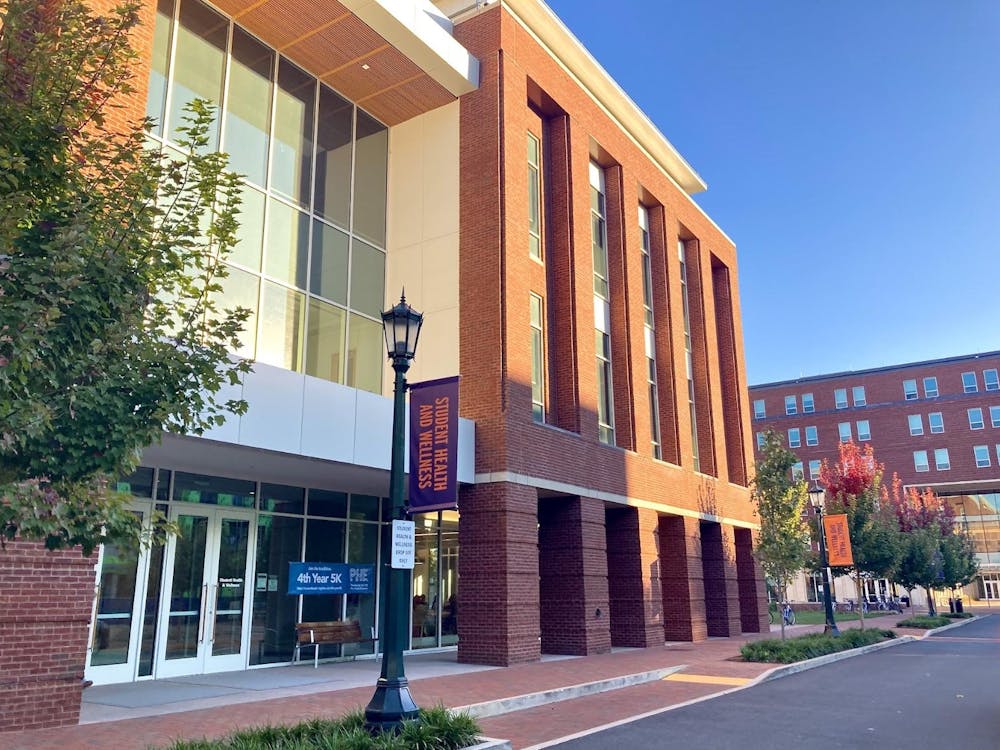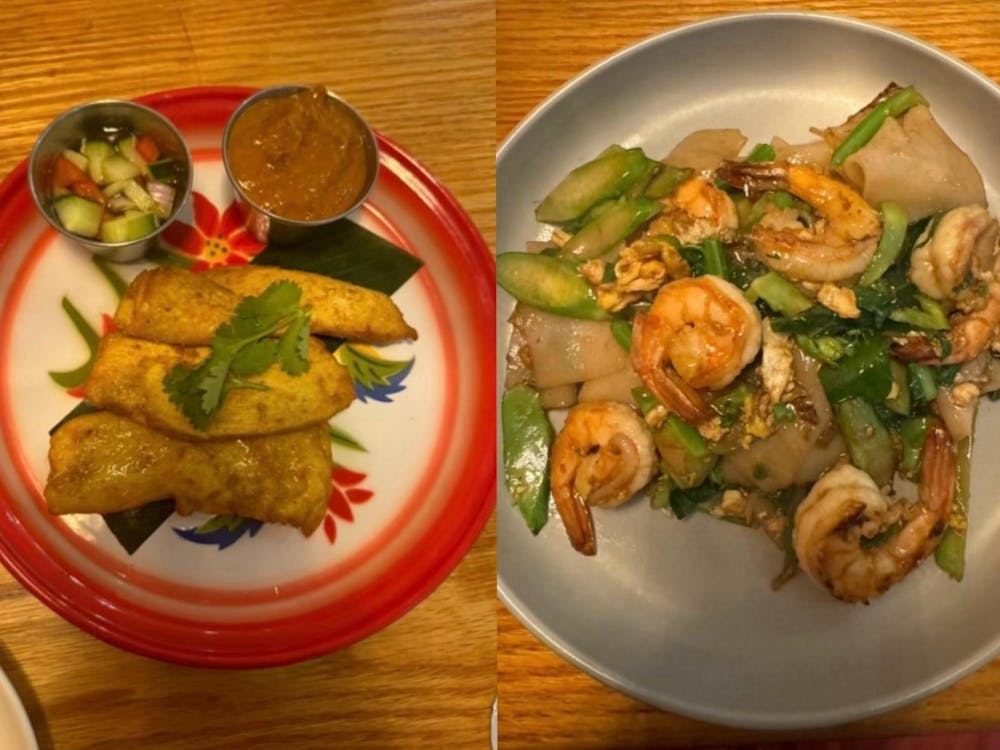By Rachel Alberico, Christa Dierksheide, Catherine Dunn and Julie Hofler Cavalier Daily staff writer Sept. 12, 2001 -- Charlottesville
Without warning
Shocked. Stunned. It just didn't seem real.
Whether they woke up to the frantic smoke-filled confusion of the early morning news shows or a phone call from concerned family members, University students faced the biggest national security disaster of their generation.
And no one could believe it.
"I heard it on the radio that two planes had crashed into the World Trade Center and I thought it was a joke," second-year College student Liz Bernard said. "Then I walked into the Pav and everyone had their eyes glued to the TV and I was shocked."
Concern was etched on passing faces as students walked through Grounds with cell phones glued to their ears, gathering news from family members and friends around the country.
The Lawn transformed from an idyllic college setting to one of chaos and worry as the news of the day's tragedies continued to circulate.
Open Lawn rooms quickly became information centers for anyone passing by as groups of students crouched around television screens, watching CNN's coverage of "America Under Attack," NBC's "Day of Terror," or Fox News's "Terrorism Hits America."
A sign posted on the door of Room Eight East Lawn written in black and outlined in yellow hi-lighter read, "Turn on your TV."
"This doesn't happen, this is something from the movies," said first-year College student Nathan Royster as he sat in Cabell Hall. "This is the biggest thing I have ever seen."
Other students reacted with fear that family members and friends were among the thousands affected by the mass destruction.
"I just feel like it's so surreal," said second-year College student Julie Agostini, a New Jersey native whose family lives 10 miles outside of New York City. "I just have this feeling that someone I know is going to end up being involved in it because I know so many people up there."
Students fought busy signals on telephones in an earnest effort to contact loved ones in New York City and Washington, D.C.
"Professor Elzinga told us [about the disaster] and offered his cell phone to call if you had friends or family in New York," said first-year College student Desiree Aird. Aird, who learned of the catastrophe during Elzinga's Economics 201 class, used the opportunity to call her father, who works in New York. She couldn't get through to him, but was able to reach her mom. "He called [home] but he couldn't get home because they closed all the bridges. He said he was okay. You could see it [the smoke] from his window."
Second-year College student Erin Curran and fourth-year College student Mark Manley gathered around their friend's television in Room 53 West Lawn.
"I couldn't even wait five minutes to go home and watch the TV," said Manley.
Curran learned of the news this morning from her roommate's father who called from an airport to say that he was safe. "This doesn't happen in the U.S. It just doesn't," Curran said.
Cocke Hall's usual crowd of students checking e-mail was disrupted by a slew of students looking to the Internet for the latest news.
"I went to Cocke Hall to check my e-mail after class and the CNN Web site was down because there were too many hits on it and everybody was looking at it," said third-year College student Caroline Morris. "The girl next to me was crying and freaking out."
Morris said she had tried to call her dad, who works in Richmond, but the line was busy.
Although classes were not officially canceled yesterday the disaster prompted some students to end the day early or stay home altogether, keeping a close watch on the television for any new developments.
Do not go gentle into this dark night
A jam-packed Hoo bus pulled up at the Garrett Hall bus stop at 7:50 p.m.
Crowds of students flooded the sidewalks from all directions toward the Vigil of Concern, headed by Student Council College Representative Sarah Jobe, on the steps of Old Cabell Hall and the lower Lawn. Some students lined up to receive candles and programs, while others met friends, hugged and exchanged emotional stories of the day.
Fourth-year College graduate student Heather Rowe, who was passing out programs near the Lawn, expressed her emotions as "pretty much the same as everyone ... mostly shock and disbelief, followed by more shock," Rowe said.
She explained that several different University groups had wanted to organize a gathering or service on the Lawn at 8 last night.
"It just sort of came together," she said.
The purpose of the vigil, Rowe explained, was to give students of all faiths a time to come together for silence and mediation and reflect upon the day's events.
"I just think we need to have some time to not be watching the footage, not be watching the TV screens and hearing the commentators," said Rowe. "To have a break from what everyone else is saying and just to hear what's happening in our own head."
[...]
Some students headed for Newcomb Hall where support and counseling services were available around the clock. Still others headed home to join friends and contact family members.
Others simply took refuge in the strength and symbolism of their country's colors. Padding along a grassy avenue of the Lawn, two male students strolled close together, silent, an American flag draped about their shoulders.
This article has been edited for space.




